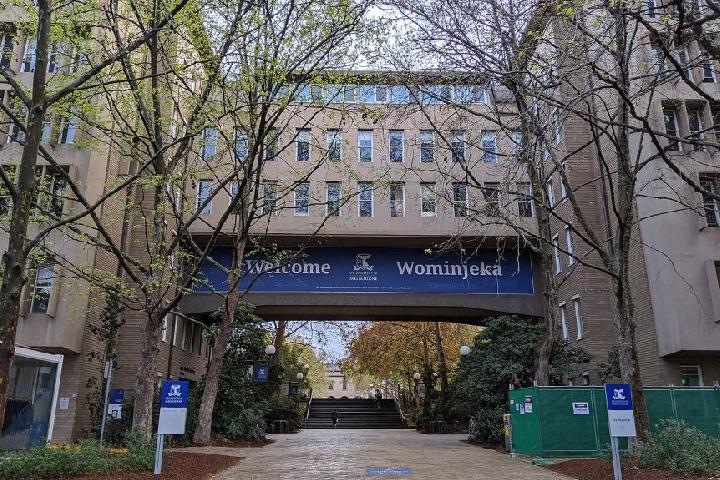
What is a Korean woman doing, living and working in Indonesia? And not doing too badly given her company’s US$ 3 million in annual revenues. Ordinarily, when Korean women come to Indonesia, it is almost always, as a dependent spouse, whose husband may be working in one of the 1,800 Korean companies operating in Indonesia.
There are currently about 50,000 Koreans in Indonesia, arguably the largest number of foreign communities. But unlike many of her compatriots, Mee Kim has made her mark as she never could have done back in her home country. “Because I am a woman, I was never given the opportunity to develop on my own over there,” she told Tempo.
Her home is now Indonesia, which is also the base of her multinational company, CEO Suites, providing office space and services to 400 international companies in Jakarta, Singapore, Kuala Lumpur, Bangkok, Manila, Beijing, Shanghai and Seoul.
Kim took time off to be interviewed by Tempo contributor, Seulki Lee, in which she shared her trials and tribulations to get where she is now. Excerpts:
What made you come to Indonesia in the first place?
Twenty years ago, I was in Australia to work for a company called Servcorp, after I completed my masters at New South Wales. They assigned me to its office in Bangkok, Thailand and it was during that time that I came to Indonesia, to visit my Australian friend who had married an Indonesian. Jakarta then was bubbling. It was 1993, it had just opened up. I just fell in love with the energy of Jakarta and the people, despite the traffic and the air pollution.
How, as a Korean girl, did you have the courage to travel and work outside of Korea?
In Korea, back in 1985, advertising for job openings would specify that the candidate should have completed military service. That meant they were looking for men. The only opening for women in a Korean company at that time was almost always a secretarial position. So after I graduated from a university in Seoul, I had no other choice but to work for a foreign company or bank. Citi bank was my first job. Every day was nightmare and I was the worst performer in my department. My boss then, tried to match me with someone, so I would get married and quit quietly.
In 1988, it was very difficult to get a passport if you wanted to go overseas. At that time, everyone wanted to go to America, people hardly knew about Australia. But they offered permanent residence or go to graduate school, whose tuition fee was cheaper, and the only country which allowed foreign students to work part time. I could support myself without counting on my parents. So I quit Citi bank and applied to become an Air Gold Coast stewardess. Although I didn’t get the job, I got to know Australia.
So, I decided to go to Australia and applied to get into the University of New South Wales. But I had to do it quietly, because my father is from Busan, where people are still very traditional, who would never allow their daughters to go overseas and live alone without husband. I only told my mother and, doing all the preparations on my own. I left in the middle of the night. That’s how my journey started.
How did you first get into this ‘office service’ business?
When I was in Australia, in order to save costs, I rented an apartment and turned into a service apartment. It was a one-room unit, and I equipped it with second hand furniture from the Salvation Army. I rented my bedroom to my Thai friend, so I slept in the living room sofa-bed. I cleaned the house, cooked for her and she paid me, and I could pay the mortgage. In that way, I don’t have to pay for my own living expenses and the rent. That’s how I survived earlier on, running a small business.
When I graduated, again there was no opportunity at all for me. I sent thousands of CVs to Australia and finally got a job in a company called Servcorp, a very small company with 13 branches, exactly same size as my current company now. They serviced offices, very few people knew about the industry. This business just fascinated me and somehow it was very similar to how I rented my apartment and served my friend.
I heard your company; CEO Suite is growing 30-40 percent every year. How did it start?
I sold my apartment in Sydney, my husband’s small house and my father put his house up in Korea and we got enough loans for an operational capital to survive the first year. Our first center was the stock exchange building. There was a Korean businessman who ran a successful Korean restaurant. He opened up nearly the same 1,500 square meters of space, and all the Koreans betted on who would go bankrupt first, paying the highest rental in town.
A month later, the IMF started the biggest Asian crisis. All the investors shut down. My entire bank loan was in US dollars, which fluctuated 20 times from the initial value. The Korean restaurant went bankrupt within a year. I got pregnant and my stomach grew while whole city burnt. It was like a war zone, everyone ran away.
Then I got the idea to manage those foreign companies which ran away, offering them one-stop service with rented space, internet, meeting room, and the most minimum service. So we called it ‘serviced office’. I added more on top of that, we did everything for the companies, whose headquarters may be in Sydney or America. Whenever they wanted anything, they could just send me an email or call.
Sometimes, I even did their taxes, handled their clients, attended whatever meeting, and handled their staff, payroll, anything that needed to be done in Indonesia. They usually came about once a month, check things out then go back.
There was a huge demand at that time and I made good money, of course. They would pay any amount of money to keep their company. So in less than two years after opening our business, we opened the second branch (at Wisma GKBI). We now have our 14th center at the Mega Kuningan City. The others are located in eight cities, seven countries. We have been growing, mostly serving multinational companies. We are the only office provider with a team of women who are experts in this industry, chalking up 10 to 20 years of experience.
So, 90 percent of CEO Suite employees are women. Is there a limit to hiring women?
Admit the reality. The man are empowered, they are in charge. If I were them I wouldn’t give women a chance, I would maintain my power in a game. They will never cooperate. Each of us helps each other to develop our power and eventually it will happen, and it’s already happening in Korea. Back then, the challenge for women was how to balance our marriage, our parenting role with our careers.
We need to know our priorities. Admittedly, I don’t do anything at home because I have my mother-in-law taking care of my son, and who takes care of the house too. Meanwhile, I tell my son that I work because I’m good at it. And my mother-in-law is good at housekeeping. I’m not doing this because it is more powerful.
When asked to name three Indonesian business women whom she is impressed with, Mee Kim named Sintesa Group managing director Shinta Kamdani, Femina Group's Svida Alisjahbana and Blue Bird Group Vice president Noni.
She said those Indonesian women are very lucky for the availability of domestic help, compared to women in America or in Korea where women have to take care of everything.
In the old days, she said, people sought the American dream. But for her it is the Indonesian dream. "Many Koreans, myself included, has managed to make big things possible here. It could not have happened in any other place."
The complete interview can be read in this week's edition of Tempo magazine.























